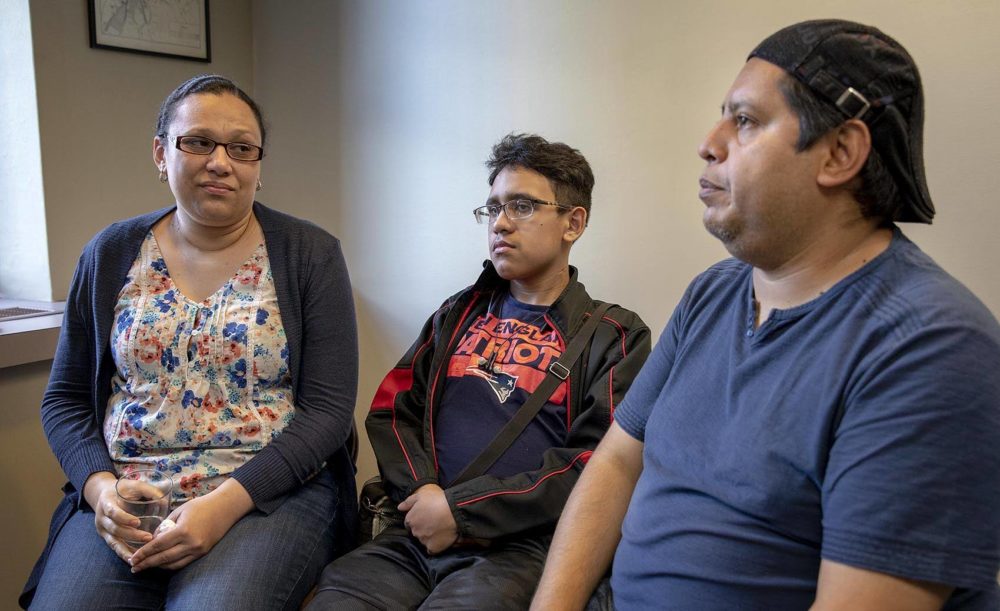Advertisement
Commentary
What Deporting Sick Immigrants Says About America

The Trump administration’s announcement on Monday that it would reverse course and process applications filed by Aug. 7 from seriously ill immigrants who are seeking to stay in the U.S. for their medical care must be welcome news to Carlos.
Carlos (not his real name) is an adolescent with a progressive genetic disorder that affects his skeletal and heart muscles. Without the aggressive medical treatment Carlos receives in Boston, he would likely die while still a teenager. Fortunately, his lawyers filed his petition for medical deferred action prior to the Aug. 7 cutoff date. That means that he will likely be able to stay in Boston and receive the care he needs.
Many other medically complex immigrants may not be so lucky. In announcing that it would process applications filed by early August, the administration stated it would review the future of the medical deferred action program — leaving the fate of many other seriously ill immigrants in jeopardy.
The administration’s decision to abolish, and then review the program, despite the intense political blowback, will be the subject of a hearing on Friday before the House Subcommittee on Civil Rights and Civil Liberties. Hopefully the hearing will answer a simple question: Why would they do it? Why would they even consider ending a program that allows non-citizens, such as Carlos, to remain in this country for lifesaving medical treatment?
If we banish them, all cruelty will be possible.
Certainly, it's not to save money. The non-citizens affected aren’t entitled to federally supported health care. Some have private insurance. Others are supported by state programs or private charities. Some are receiving treatment by participating in clinical trials. Money’s not the issue.
Nor are dying children taking jobs or causing crime, the reasons often given by supporters of tougher immigration policies. No, something more insidious must be going on.
Writing in The Atlantic last fall, Adam Serwer hypothesized that “the cruelty is the point.” Cruelty serves to bind President Trump’s supporters to him, uniting them in their “shared scorn for those they hate and fear.”
Serwer’s insight helps to explain the recent action by U.S. Citizenship and Immigration Services (USCIS). But to fully grasp why the Trump administration has targeted sick and dying children, one needs to think not only about the children, but also their caregivers. The doctors, nurses and aides who treat them; the churchgoers who raise money for them; and the neighbors who support their families. They are also targets of the policy.
Advertisement
By caring for immigrants in need, they reaffirm that immigrants, even the most vulnerable, are our fellow human beings, fully worthy of compassion and respect. Even more, by caring for those who are ill, caregivers give lie to acting USCIS director Ken Cuccinelli’s claim that we can only welcome those who are self-sufficient. For those who care for the dying know that no one is always self-sufficient. We care for others in part because we know that someday we will be in their shoes.
It is precisely because healers reaffirm the vulnerability and compassion that is central to the human condition that philosopher and writer Albert Camus chose a physician to fight the plague in his allegorical novel about fascism. Likewise, the administration is contemplating banishing the most vulnerable of immigrants precisely because caring for them reinforces the compassion and respect for human dignity that is antithetical to a political program that depends upon the dehumanization of those who look or think differently. As long as we care for these children, we cannot be the nation that the Administration would have us become.
If we banish them, all cruelty will be possible.
But what the administration and its supporters forget in their efforts to squash compassionate care is that they cannot deport their own mortality. Someday, they too will need the care and compassion they seek to expel from the land. Perhaps then they will discover if a nation that deports dying children will have any compassion left to give.
